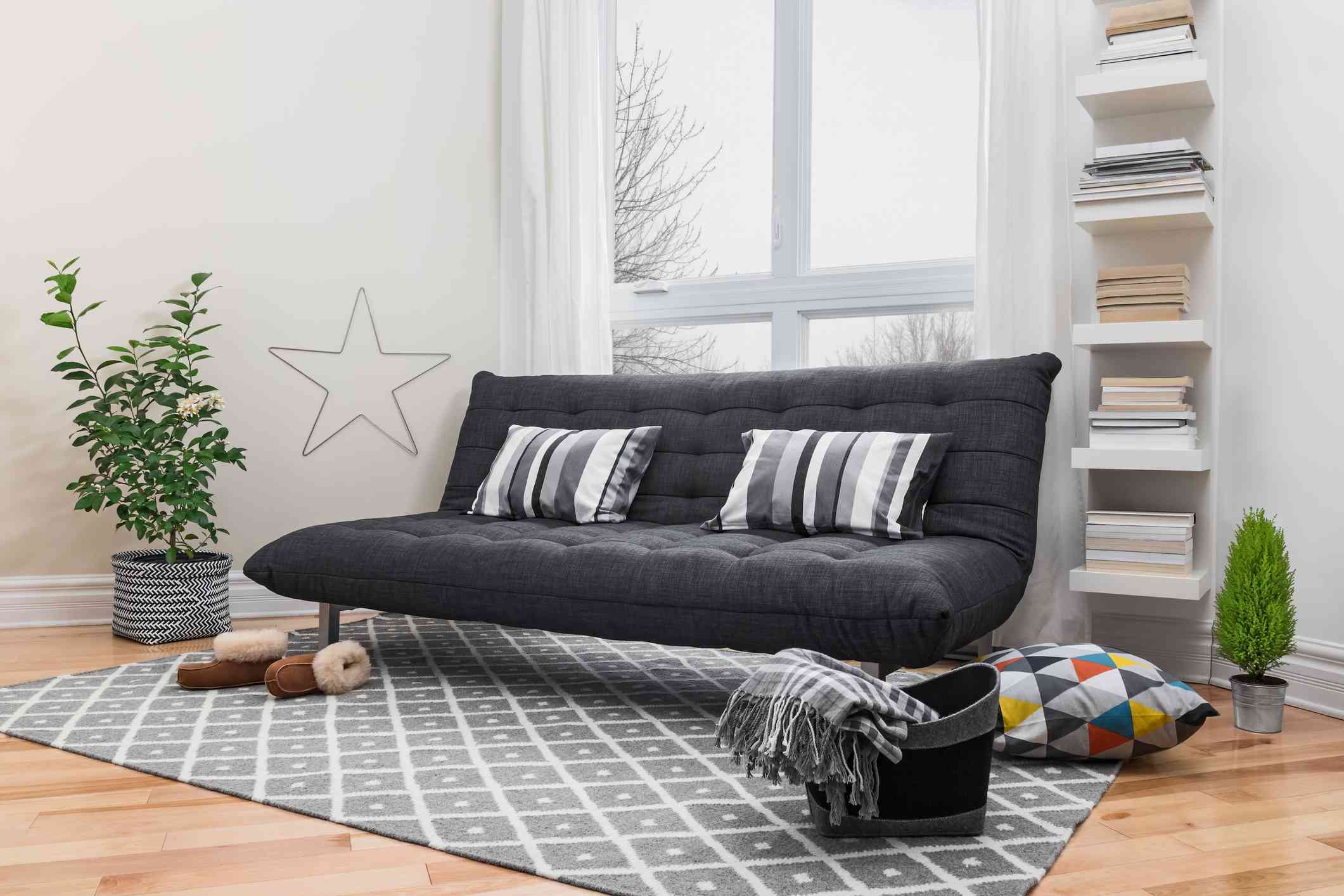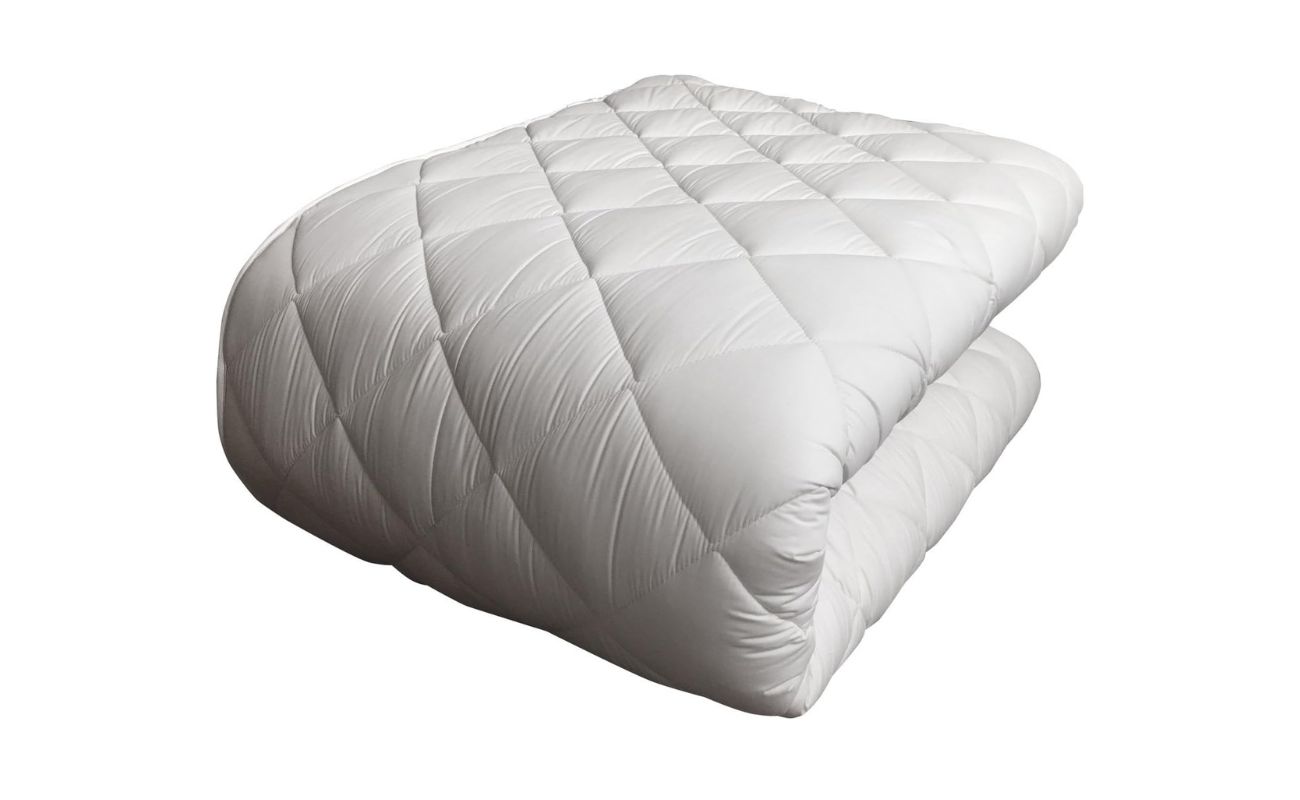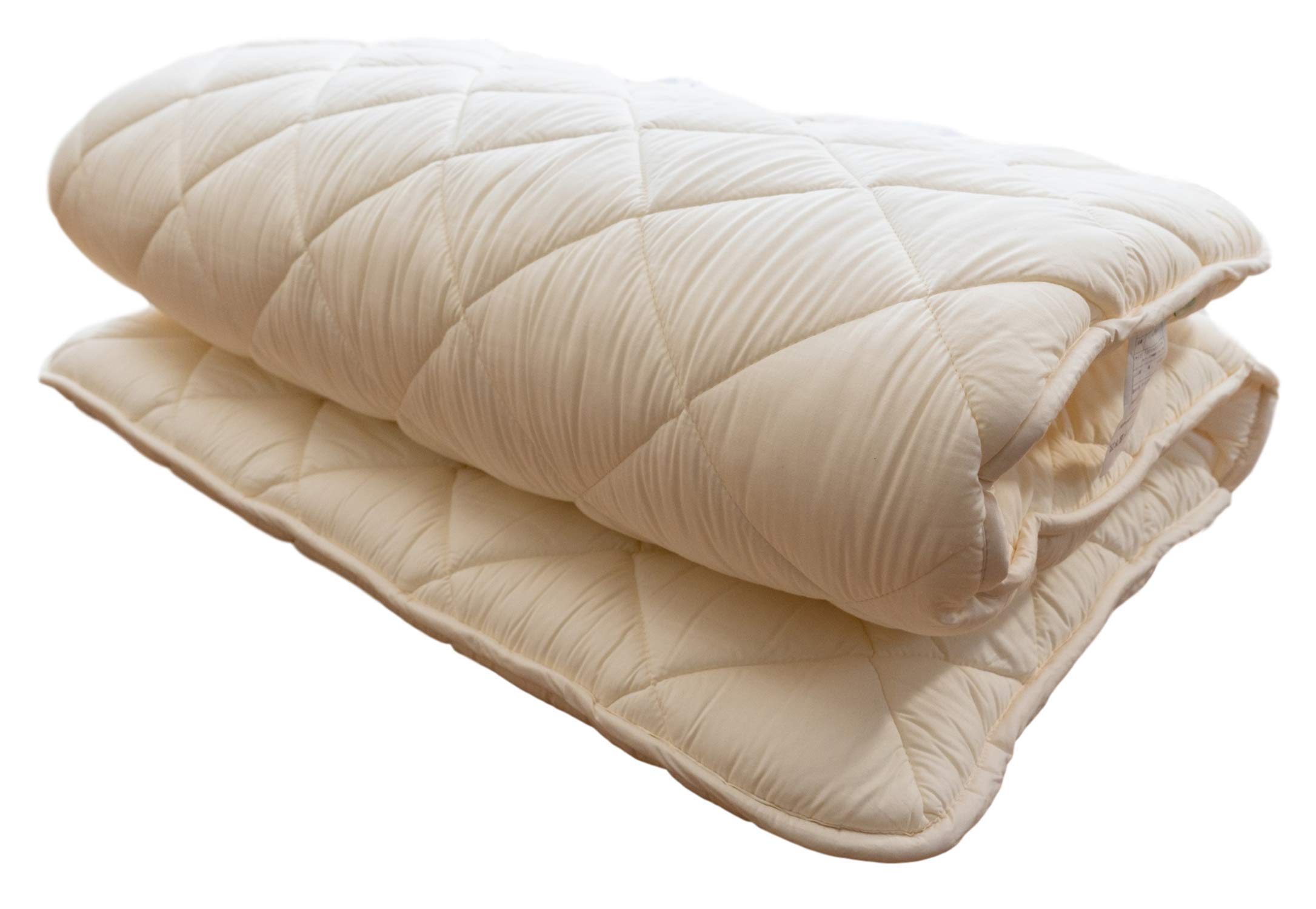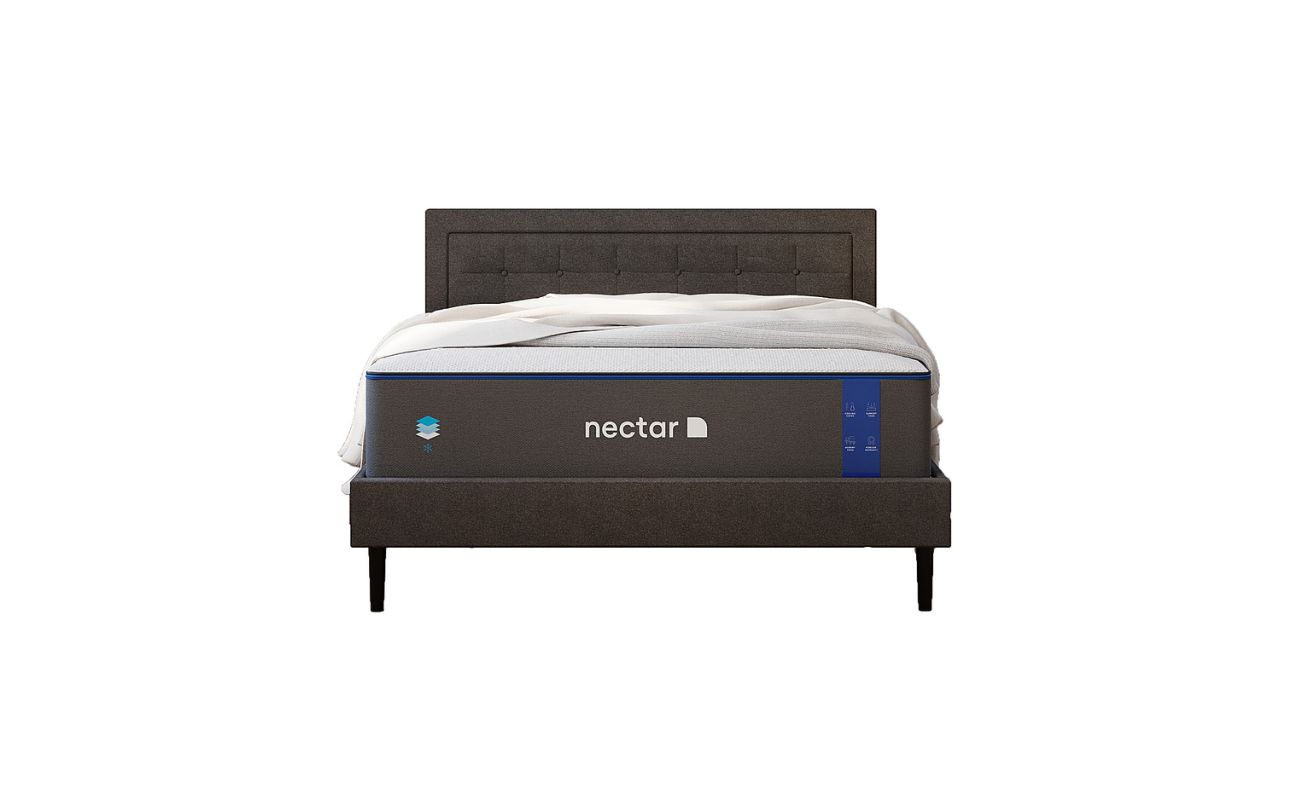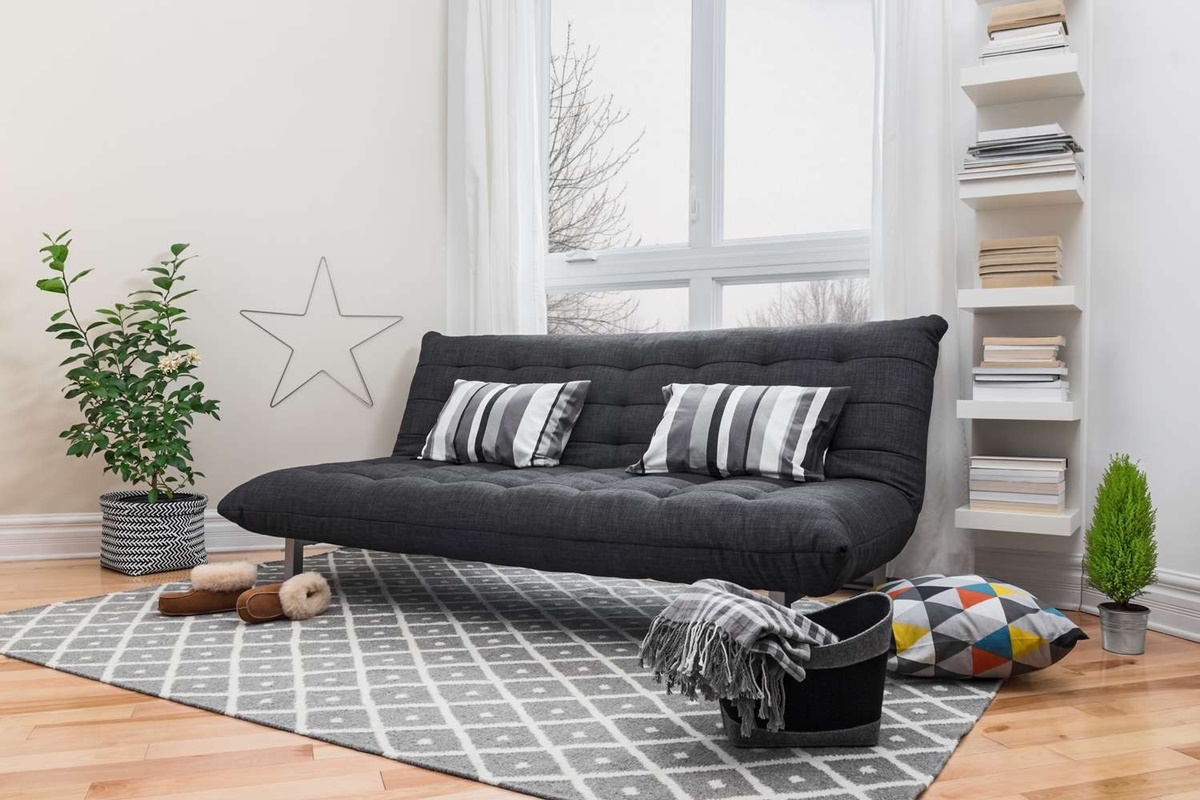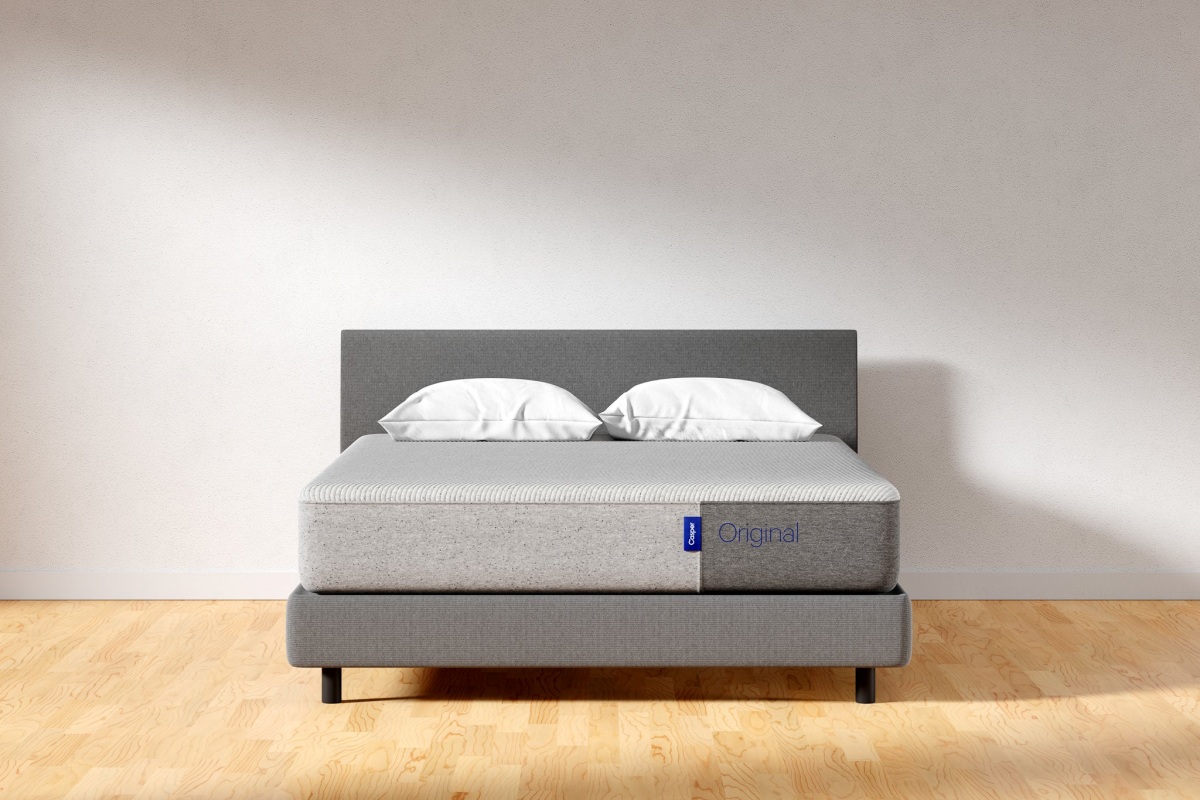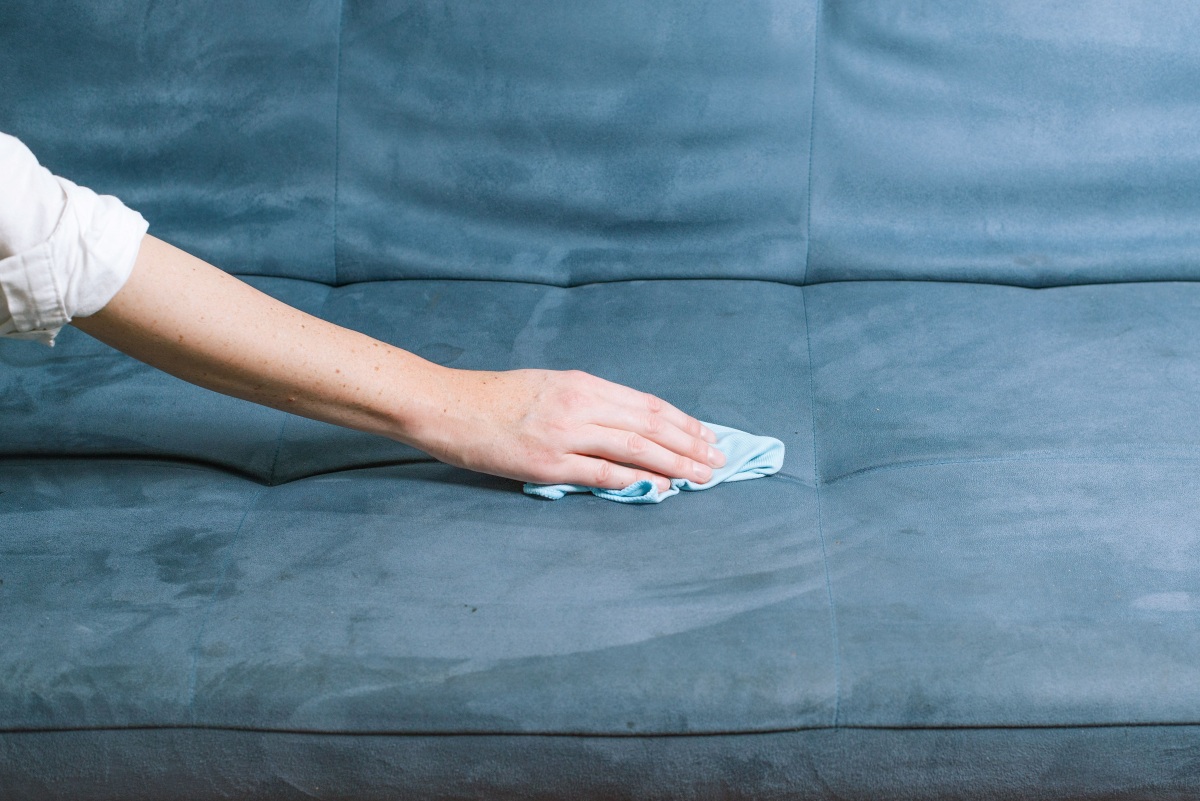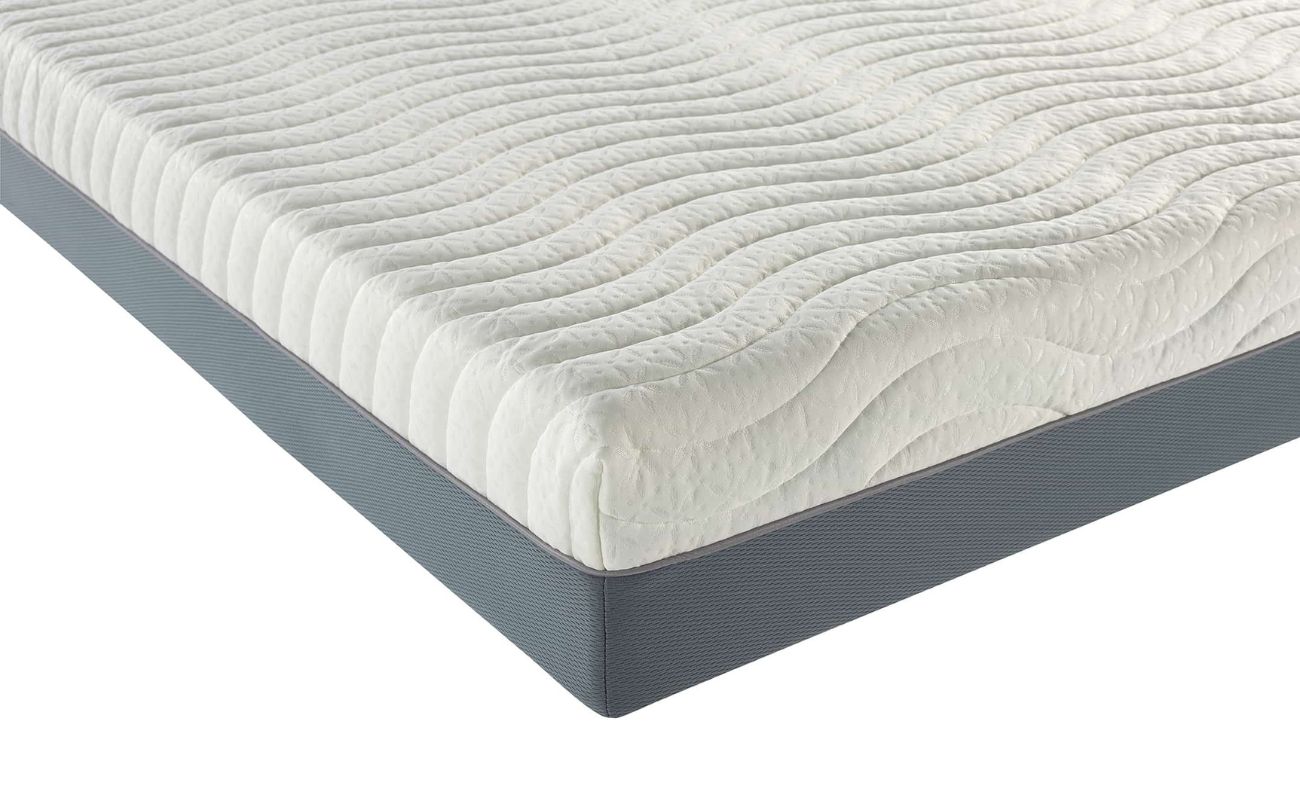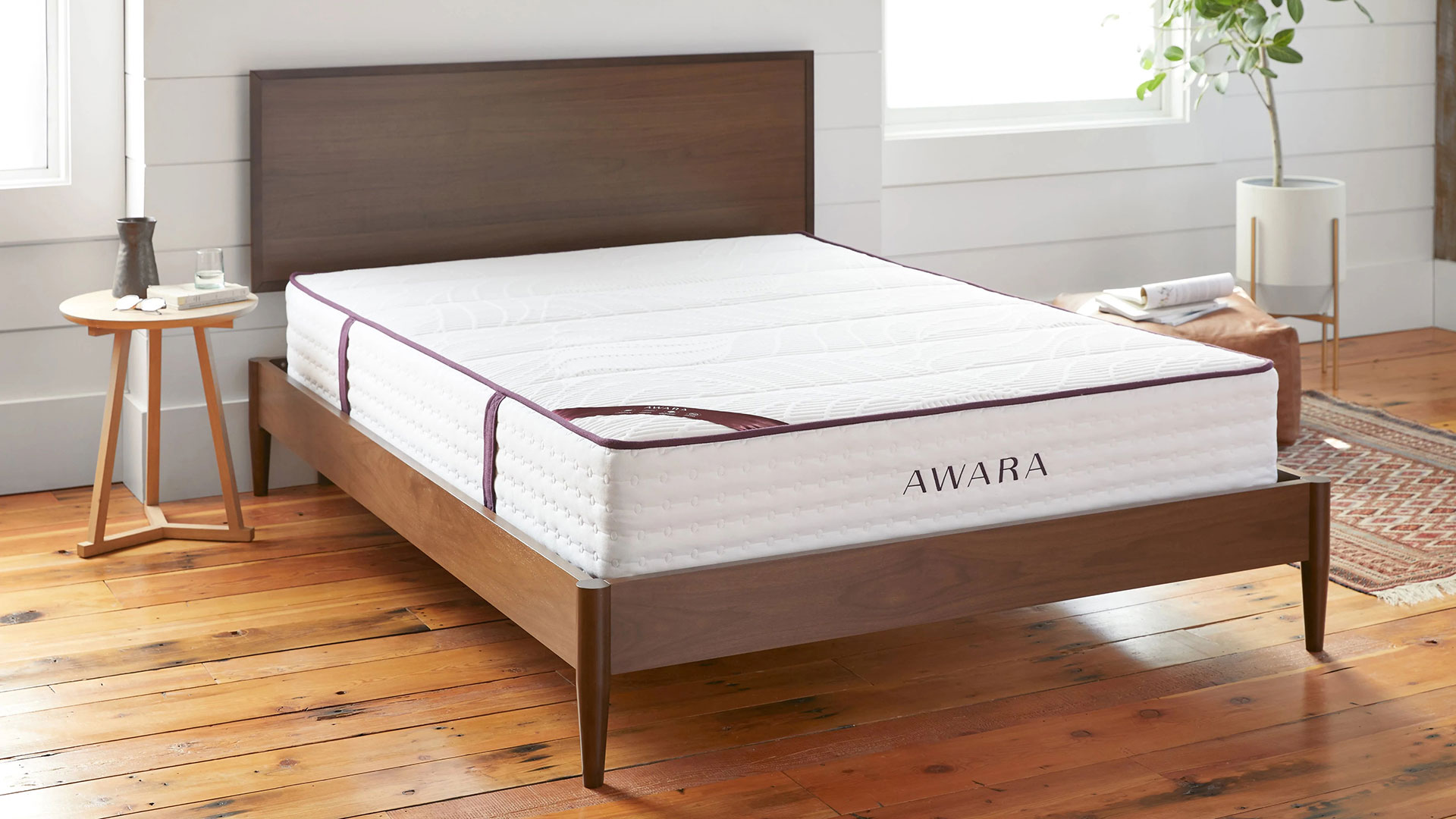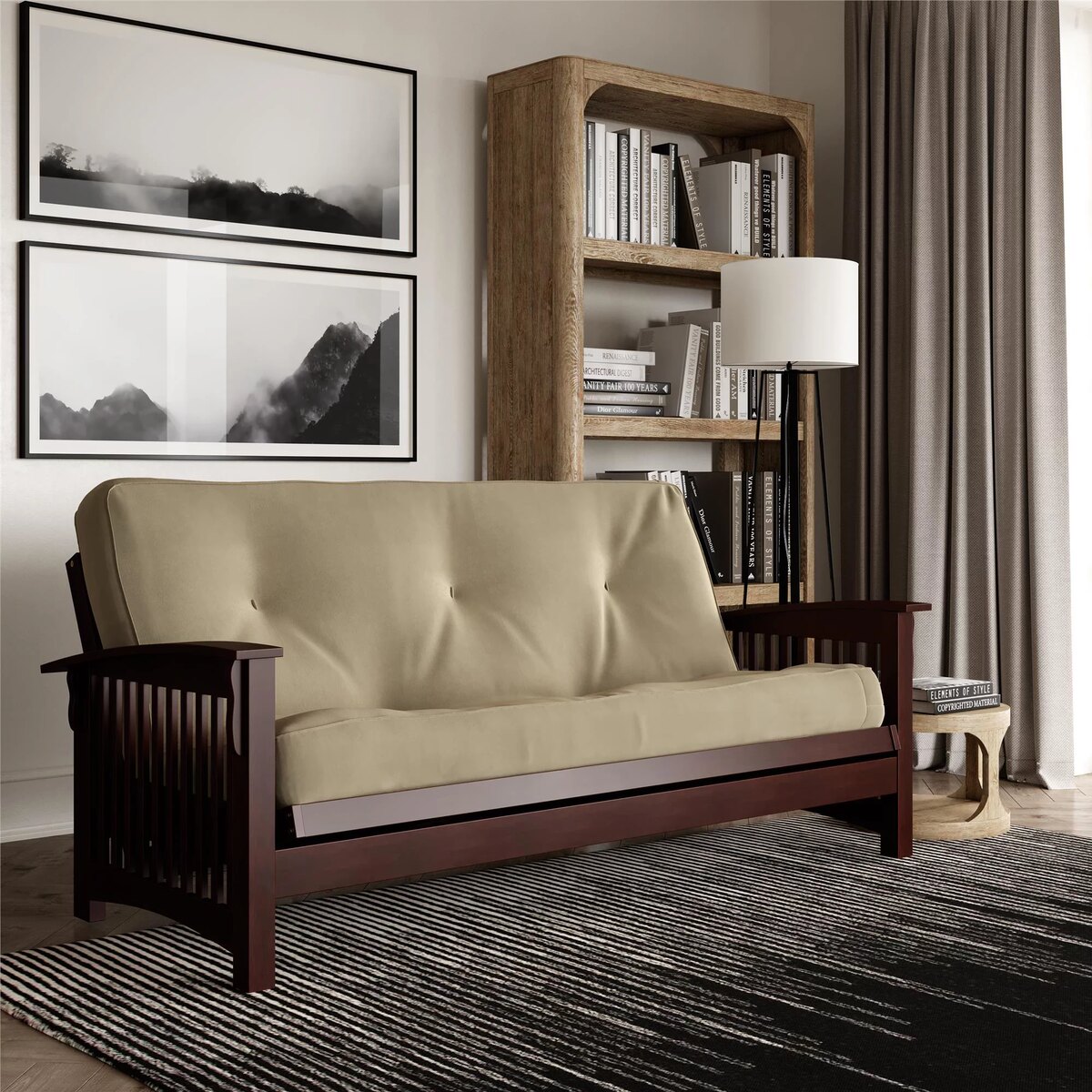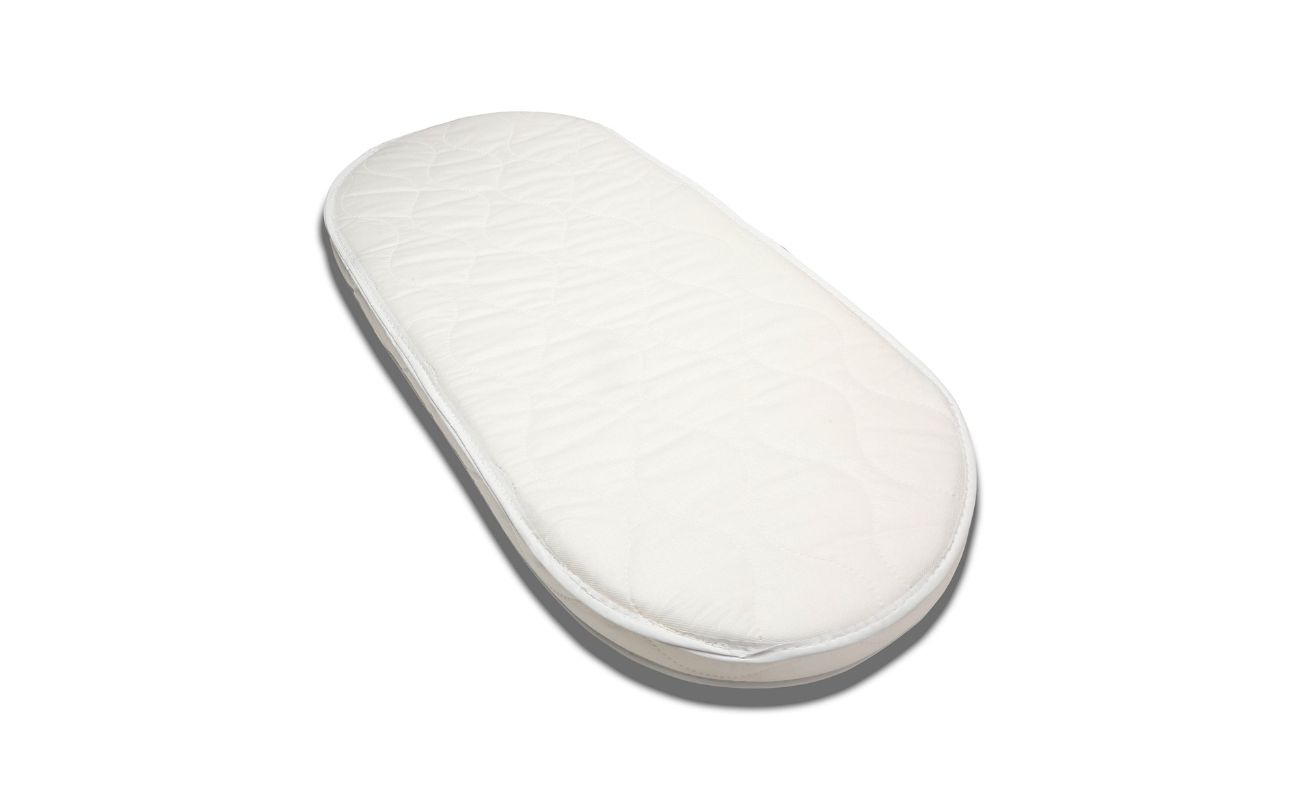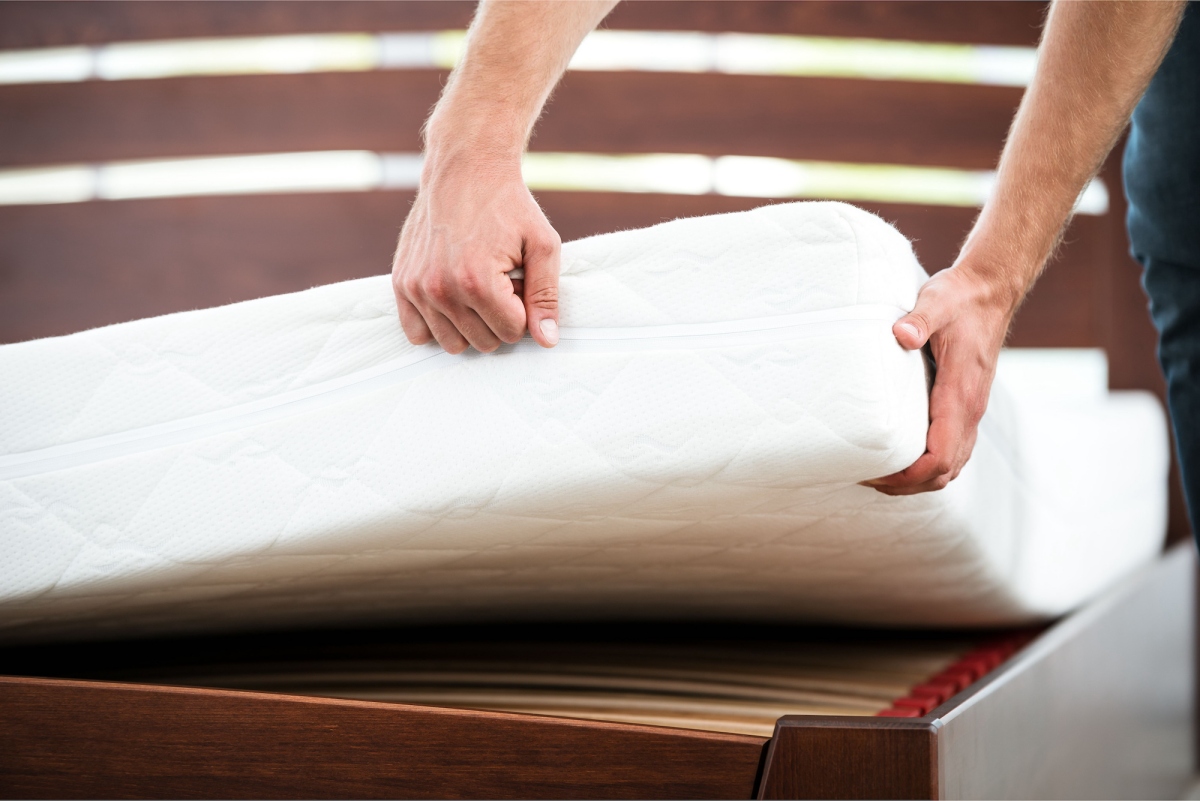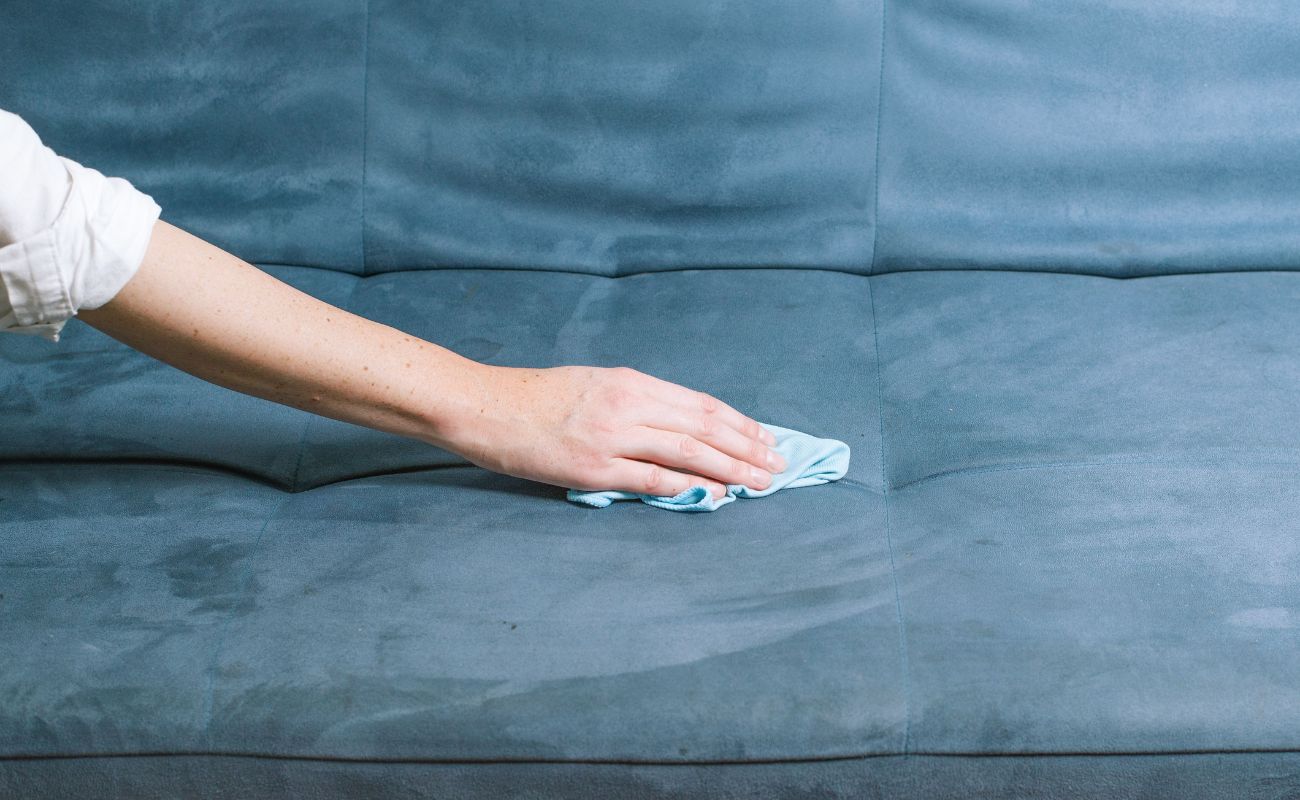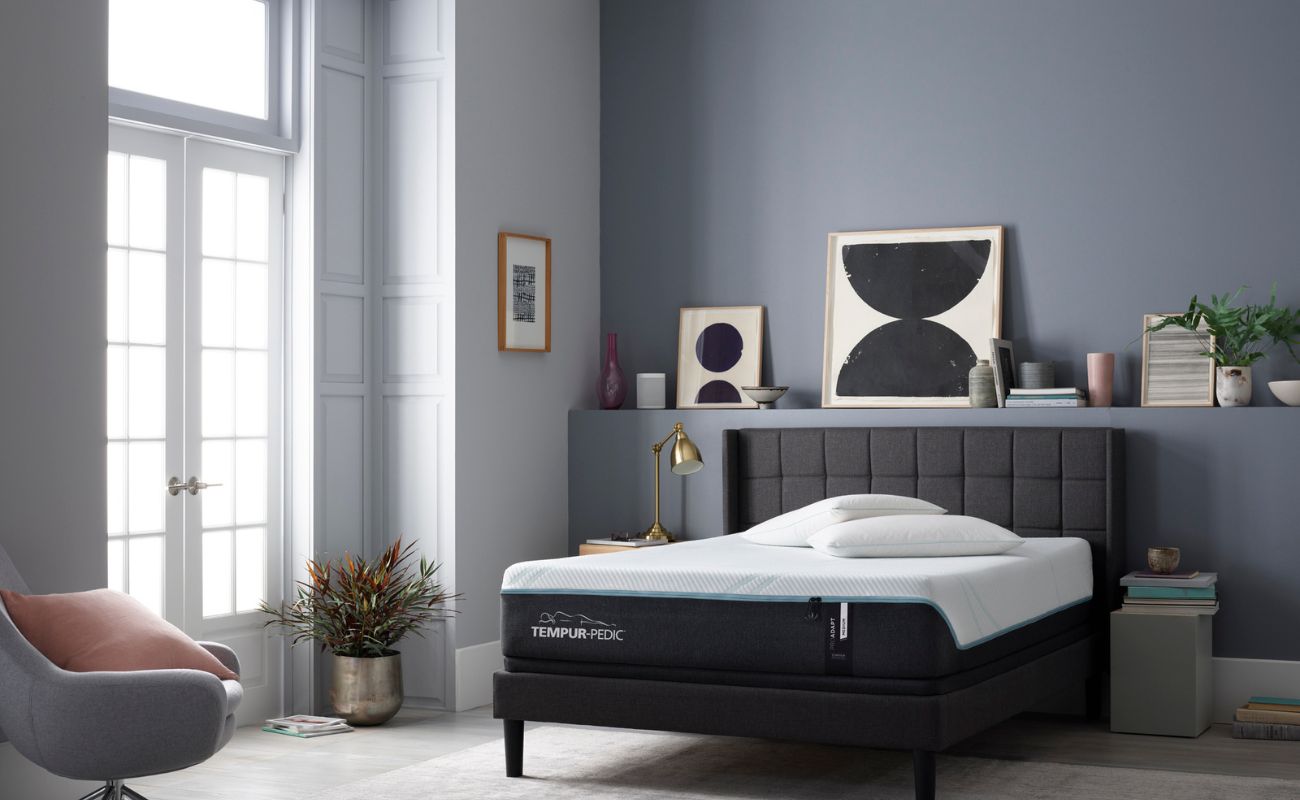Home>Furniture>Bedroom Furniture>How Thick Is A Futon Mattress
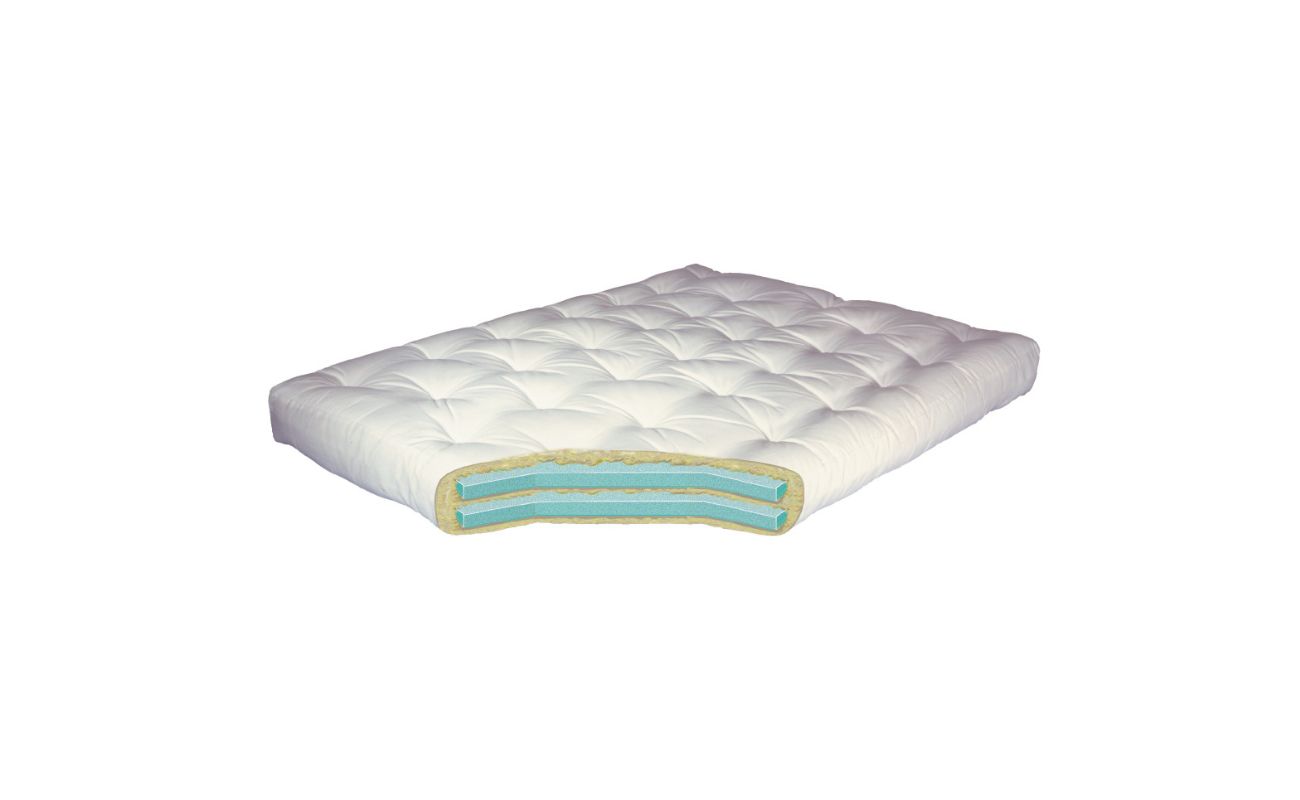

Bedroom Furniture
How Thick Is A Futon Mattress
Modified: January 19, 2024
Looking for a comfortable and space-saving mattress for your bedroom furniture? Discover the ideal thickness of a futon mattress in our comprehensive guide!
(Many of the links in this article redirect to a specific reviewed product. Your purchase of these products through affiliate links helps to generate commission for Storables.com, at no extra cost. Learn more)
Introduction
Welcome to the world of bedroom furniture! One of the most essential pieces of furniture in a bedroom is the bed, and when it comes to versatility and functionality, the futon mattress takes center stage. Futon mattresses have gained popularity for their dual purpose, serving as both a comfortable sleeping surface and a stylish seating option. But have you ever wondered how thick a futon mattress should be?
In this article, we will explore the world of futon mattresses and delve into the importance of thickness. We will discuss the standard thickness of futon mattresses, factors to consider when choosing thickness, and the benefits and drawbacks of thicker futon mattresses. So, if you’re looking to optimize your bedroom comfort and aesthetics, keep reading to gain valuable insights into the world of futon mattress thickness!
Key Takeaways:
- Thicker futon mattresses offer enhanced support, cushioning, and durability, making them ideal for individuals with joint or back pain, side sleepers, and those seeking maximum comfort.
- Consider factors such as sleeping habits, physical health, usage, available space, and personal comfort when choosing the ideal thickness for your futon mattress.
Read more: How To Store A Futon Mattress
What is a Futon Mattress?
A futon mattress is a type of bedding that originated from Japan. Traditionally, it consists of a padded mattress filled with cotton batting and covered in fabric. Futons are known for their ability to be folded and stored away when not in use, making them a versatile and space-saving option for small living spaces.
Over the years, the design and construction of futon mattresses have evolved to cater to different needs and preferences. Today, you can find futon mattresses made with various materials such as foam, innerspring coils, and memory foam. These updated designs provide enhanced comfort and support, making futons a popular choice for both sleeping and sitting.
When used as a bed, a futon mattress is laid flat on a platform bed or a simple futon frame. But what sets futon mattresses apart from traditional mattresses is their ability to transform into a sofa-like seating position. By folding the mattress in half or into thirds, you can create a comfortable seating area during the day and convert it back into a bed at night.
The Importance of Thickness
The thickness of a futon mattress plays a vital role in its overall comfort and durability. It affects the level of support provided to your body while sleeping or sitting, as well as the longevity of the mattress. Finding the right thickness is essential to ensure a restful sleep and a comfortable sitting experience.
When it comes to sleeping, a thicker futon mattress offers better support for your body. It helps to alleviate pressure points and ensures proper spinal alignment throughout the night. A thicker mattress can also provide a more cushioned surface, making it ideal for people who prefer a softer sleeping surface.
Additionally, the thickness of a futon mattress affects its durability. Thicker mattresses generally tend to be more resilient and long-lasting. They are less prone to sagging or losing their shape over time, ensuring that you can enjoy the comfort and support of your futon for years to come.
On the other hand, the thickness of a futon mattress also affects its versatility as a seating option. Thicker mattresses tend to provide better support and cushioning for sitting, allowing you to sink in and relax. If you plan on using your futon mattress primarily for sitting, a thicker option may be more suitable to ensure maximum comfort.
However, it’s important to note that the ideal thickness of a futon mattress can vary depending on personal preferences and specific needs. Some people may prefer a thinner mattress for a firmer sleeping surface or a sleeker seating position. The key is to find a balance that meets your individual comfort requirements.
Standard Thickness of Futon Mattresses
Futon mattresses come in a range of thicknesses to cater to different needs and preferences. The standard thickness of a futon mattress typically falls between 6 to 8 inches. This range strikes a balance between comfort and versatility, providing adequate support for both sleeping and sitting.
A 6-inch futon mattress is considered the thinner end of the spectrum. It offers a firmer sleeping surface, suitable for those who prefer a more supportive feel. Thinner mattresses are also ideal for people who plan to use their futon primarily for sitting, as they offer a sleeker seating position without excessive sinkage.
On the other hand, an 8-inch futon mattress is on the thicker side. It provides more cushioning and a softer sleeping surface, perfect for those who enjoy a plush and cozy feel. Thicker mattresses are also beneficial for individuals with joint or back pain, as they offer enhanced pressure relief and support.
It’s important to note that these standard thicknesses can vary slightly depending on the manufacturer and specific model of the futon mattress. Some brands may offer options beyond the 6 to 8-inch range, such as 10 or 12-inch mattresses, for those who desire additional thickness and luxury.
When selecting the thickness of your futon mattress, it’s crucial to consider the intended use and your personal comfort preferences. If you plan on using it primarily as a bed and value plushness and maximum support, opting for a thicker mattress may be the right choice. However, if you prioritize a firmer sleeping surface or plan to use the futon mostly for sitting, a thinner mattress could suffice.
When measuring the thickness of a futon mattress, it’s important to consider both the uncompressed and compressed thickness. Uncompressed thickness refers to the full thickness of the mattress, while compressed thickness refers to the thickness when the mattress is in use as a bed. This distinction is important when considering the comfort and support of the futon mattress.
Factors to Consider When Choosing Thickness
When selecting the thickness of your futon mattress, there are several factors to consider to ensure optimal comfort and functionality. Let’s explore these factors:
- Sleeping Habits: Consider your sleeping position and preferences. If you tend to sleep on your stomach or back and prefer a firmer surface, a thinner futon mattress may be more suitable. On the other hand, if you sleep on your side or enjoy a softer sleeping surface, a thicker mattress may provide the necessary cushioning and support.
- Physical Health: Take into account any physical conditions you may have, such as chronic pain or back issues. Thicker futon mattresses often offer better pressure relief and support for those with joint or back concerns. Consult with a healthcare professional if needed to determine the ideal thickness based on your specific condition.
- Usage: Evaluate how you plan to use your futon mattress. If you primarily intend to use it as a bed, a thicker mattress may be more comfortable for extended periods of sleep. However, if it will mainly serve as a seating option, a thinner mattress may be preferable to ensure a more firm and supportive sitting position.
- Available Space: Consider the dimensions of your room and the available space for the futon mattress. Thicker mattresses may occupy more vertical space when folded, so if you have limited clearance or a low ceiling, a thinner mattress could be the better choice to avoid any restrictions.
- Personal Comfort: Ultimately, your personal comfort is key. Test out different thicknesses in person if possible, or read customer reviews for insights on the comfort level of different futon mattresses. Everyone has unique preferences, so choose the thickness that feels most comfortable and supportive to you.
By considering these factors, you can make an informed decision about the ideal thickness of your futon mattress, ensuring a restful sleep and comfortable sitting experience.
Read more: What Is A Futon Mattress
Benefits of Thicker Futon Mattresses
Thicker futon mattresses offer several advantages that can enhance your overall comfort and sleeping experience. Let’s explore the benefits of opting for a thicker futon mattress:
- Enhanced Support: Thicker futon mattresses provide better support for your body, particularly for those with joint or back pain. The added thickness helps alleviate pressure points and promotes proper spinal alignment, resulting in a more comfortable and restorative sleep.
- Improved Cushioning: Thicker mattresses offer increased cushioning and contouring to your body, allowing you to sink in and enjoy a cozy and plush feel. This can be especially beneficial for side sleepers who require additional support for hips and shoulders.
- Longevity and Durability: Thicker futon mattresses tend to be more durable and long-lasting compared to thinner options. The extra padding and materials provide better resistance against wear and tear, ensuring that your futon mattress maintains its shape and support for an extended period.
- Versatile Sitting Surface: Thicker futon mattresses offer a more comfortable and supportive seating experience. The additional cushioning allows for better weight distribution and reduces the likelihood of feeling the underlying frame when sitting for extended periods.
- Accommodates Different Sleep Positions: Thicker futon mattresses cater to various sleep positions. Whether you sleep on your back, side, or stomach, a thicker mattress can provide the necessary support, ensuring a comfortable and restful sleep regardless of your preferred position.
- Minimal Motion Transfer: Thicker mattresses tend to have better motion isolation properties, reducing the transfer of motion from one side of the bed to the other. This can be particularly beneficial for couples or individuals who are easily disturbed by their partner’s movements during sleep.
Keep in mind that while thicker futon mattresses offer these benefits, they may not be suitable for everyone. Personal preferences, health conditions, and usage requirements should all be taken into consideration when deciding on the ideal thickness for your futon mattress.
Drawbacks of Thicker Futon Mattresses
While there are numerous benefits to choosing a thicker futon mattress, it’s important to consider the potential drawbacks as well. Here are a few factors to keep in mind:
- Cost: Thicker futon mattresses tend to be more expensive than thinner ones. The additional materials and increased thickness contribute to a higher price point. If you’re on a tight budget, a thicker mattress may not be the most economical choice.
- Weight and Mobility: Thicker futon mattresses are generally heavier due to the added padding and materials. This weight can make them more difficult to move or fold, especially for individuals with limited strength or mobility. If you anticipate needing to frequently fold or transport your futon, a thinner mattress may be more practical.
- Less Firmness: Thicker mattresses tend to offer a softer and more cushioned sleeping surface. While this is beneficial for those who prefer a plush feel, individuals needing a firmer sleep surface may find thicker futon mattresses less suitable. If you require a firmer support structure, a thinner mattress may be a better choice.
- Height Restrictions: Thicker futon mattresses take up more vertical space when folded. This can be a concern if you have low ceilings or limited clearance in your room. Make sure to measure the available space and consider the height of the folded futon mattress to ensure it fits comfortably in the designated area.
- Fits Specific Frames: Thicker futon mattresses may require specific frames designed to accommodate their thickness. Before purchasing a thicker mattress, ensure that your futon frame can properly and securely hold the thicker mattress without compromising its stability or safety.
- Heat Retention: Thicker futon mattresses may retain more heat than thinner ones, especially if they are made from certain materials like memory foam. This can be a disadvantage for individuals who tend to sleep hot or live in warmer climates. Consider the breathability and heat-dissipating properties of the materials used in the mattress to ensure a comfortable sleep temperature.
It’s essential to weigh these drawbacks against the benefits when deciding on the thickness of your futon mattress. Evaluate your specific needs, budget, and comfort preferences to determine the ideal balance for your sleep and seating requirements.
Conclusion
Choosing the right thickness for your futon mattress is an important decision that can greatly impact your comfort and satisfaction. Understanding the benefits and drawbacks of thicker futon mattresses allows you to make an informed choice that best suits your needs.
Thicker futon mattresses provide enhanced support, improved cushioning, and increased durability. They offer a plush and cozy feel that can be beneficial for individuals with joint or back pain, side sleepers, and those who prioritize maximum comfort.
However, it’s essential to consider potential drawbacks, such as higher cost, weight and mobility issues, less firmness, height restrictions, compatibility with specific frames, and heat retention. These factors may impact your decision based on budget, mobility needs, sleeping preferences, room dimensions, and climate.
Ultimately, the ideal thickness of a futon mattress depends on your personal comfort, sleeping habits, health conditions, and intended usage. By carefully evaluating these factors, you can choose a futon mattress that provides the optimal level of support, comfort, and versatility for your specific needs.
Remember to test out different thicknesses if possible and consult customer reviews for insights. By striking the right balance between thickness and comfort, you can transform your futon mattress into a haven for restful sleep and enjoyable seating, creating a cozy and functional space in your bedroom.
Frequently Asked Questions about How Thick Is A Futon Mattress
Was this page helpful?
At Storables.com, we guarantee accurate and reliable information. Our content, validated by Expert Board Contributors, is crafted following stringent Editorial Policies. We're committed to providing you with well-researched, expert-backed insights for all your informational needs.
